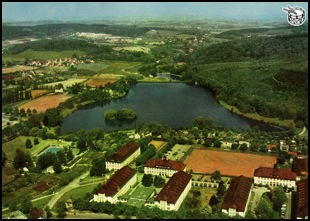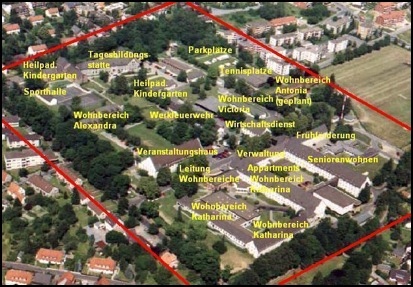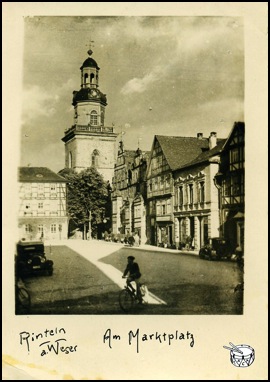In times past, soldiers' dependants were typically left to fend for themselves when it came to healthcare. So few concessions were being made by the military establishment towards maintaining the physical well-being of army wives and children – both on and off the strength – two hundred years ago, for example, that during the Peninsular War (1808–14) many an army child was born and died by the roadside. After 1824, regimental medical officers were permitted to prescribe medicines to army wives and children, but they were entitled to little more. The situation began to change for the better around the time of the Crimean War (1854–56), when such charities as the Central Association in Aid of the Wives and Families of Soldiers Ordered on Active Service provided emergency 'medical attendance' to British-based army families. The Soldiers, Sailors and Airmen Families Association (SSAFA), which was founded in 1885, was at the forefront of the charitable bodies that subsequently provided practical help to forces' families, and 'SSAFA sisters' (district nurses who belonged to the nursing branch set up by SSAFA in 1892) would later become an integral part of British army communities world-wide.
The aftermath of the Crimean War similarly saw the institution of organised military general hospitals and healthcare for soldiers, and increasingly for their families, too, especially when posted overseas. And from the start of the twentieth century, the Royal Army Medical Corps (RAMC), the Royal Army Dental Corps (RADC) and the Queen Alexandra's Royal Army Nursing Corps (QARANC) – which today form part of the Army Medical Services (AMS) – and their predecessor organisations, such as the Queen Alexandra's Military Families Nursing Service (QAMFNS), which was set up in 1921, have cared for the health of army personnel and their families, often being based at large British military hospitals (BMHs) overseas. Civilian medical and healthcare professionals have made an important contribution, too.

From 1995, many British military hospitals (BMHs) in England, Germany and elsewhere were closed to cut costs, the treatment of military dependants abroad instead being contracted out to host countries' local hospitals, with SSAFA being charged in 1996 with providing community-health services to British forces in Western Europe. Today, army children whose soldier parents are stationed in the UK are entitled to treatment under the National Health Service (NHS), while those living overseas receive general medical care at military medical centres.
TACA CORRESPONDENCE: BRITISH MILITARY HOSPITALS IN GERMANY
The mentions of the British military hospitals (BMHs) in (West) Germany (Iserlohn, Berlin, Hannover (Hanover), Rinteln, Hamburg, Hostert and Münster) in 'RECENT RESEARCH: 'BORN ABROAD' STATISTICS' prompted Peter Watson to contact TACA with the following observations. 'In addition to the ones you mentioned, there were BMHs in Oldenburg (north-west of Bremen) and Wuppertal in the early years of BAOR. BMH Iserlohn replaced Wuppertal in the 1950s and closed in the early '70s, with facilities for military personnel and their families being concentrated on BMH Münster. BMH Rinteln was originally sponsored by the RAF, but switched to the army when JHQ Rheindahlen opened in the mid-'50s and RAF Hospital Wegberg was created to provide appropriate facilities for both the army and RAF in the area. There was a small RAF hospital on the island of Sylt (close to the Danish border), which could also be used by army dependants living in the northern half of Schleswig-Holstein.' He furthermore suggests that RAF Hospital Rostrop may have taken over from BMH Oldenburg during the mid-1950s: 'Rostrop is a small village in north-western Germany near to Bad Zwischenahn, north-west of Bremen; there were three RAF stations in the area – Jever, Ahlhorn and Nordhorn – and Oldenburg is not far away. The hospital might have opened in 1953 and closed in '55/'56; it could therefore have replaced BMH Oldenburg and would have closed when the RAF assets/facilities moved south to the new airfields in the Rheindahlen area'. Peter adds: 'BMH Hostert would have replaced BMH Wuppertal and was itself replaced by RAF Hospital Wegberg'.
A GUIDE FOR FAMILIES IN GERMANY, MAY 1954: MEDICAL SERVICES
A Guide for Families in Germany (including 41 Garrison, Hook of Holland), which was published in May 1954, gives basic advice to army families living in (West) Germany during the 1950s on such issues as food (click here for more) and entertainment. Presented in question-and-answer format, the selection of extracts from the booklet given below outlines aspects of the medical care available to army families.

'Part 9 – Medical
1. General
The well established medical service in this country provides for the needs of families. Medical officers have areas allotted to them, and they are available to give medical advice and treatment to all British personnel in their area.
Q1: What medical facitilies [sic] are available?
A: The medical officer sets aside certain surgery hours for seeing families. Your unit will give you information of how, where, and when you can see him.
The medical officer is a busy man, so please do not call him to visit your quarters if you can go and see him. However, if you consider it necessary to call him to your house, do not hesitate to do so.
Q2: What about hospital?
A: If it is necessary for you to go to hospital, you will be admitted to the special families' wing at one of the following British service hospitals: –
British Military Hospital BERLIN
British Military Hospital ISERLOHN
British Military Hospital HANNOVER
British Military Hospital RINTELN
British Military Hospital HAMBURG
British Military Hospital HOSTERT
British Military Hospital MUNSTER
RAF Hospital ROSTROP
RAF Hospital WEGBERG
In some isolated areas the medical authorities at HQ NAG [Headquarters Northern Army Group] have approved certain German hospitals, to which members of British families can be admitted for treatment.
Q3: Can I receive dental treatment and can I go to a German dentist?
A: Facilities for dental treatment are available, and your unit or medical officer will give you the location of the nearest Dental Centre. You can attend a German dentist who has been chosen by the medical authorities of HQ NORTHAG [Headquarters Northern Army Group] only in those areas where a dental officer is not available. You are not advised to go to a German dentist who has not been nominated by the medical authorities and if you do so, it will be at your own expense.
Dental inspection of schoolchildren is carried out periodically and treatment provided accordingly.
Q6: Are schoolchildren medically inspected?
A: Inspections are carried out regularly by a medical officer with a member of the SSAFA Nursing Service in attendance. It is strongly advised that one of the parents should attend these inspections to receive the advice of the medical officer.
Q7: Are there any District Nurses?
A: The SSAFA Nursing Service is established throughout Germany and its members are available to give advice and help. They act as district nurses and visit the homes of British families, assist at infant welfare and Ante-Natal Clinics, school inspections, etc. All are state-registered nurses.
SSAFA Sisters are located at the following places: –
BAD LIPPSPRINGE, BAD OEYNHAUSEN, BERLIN, BIELEFELD, BRUNSWICK, BUCKEBURG, CELLE, DORTMUND, DUSSELDORF, GUTERSLOH, HAMBURG, HANNOVER, HERFORD, HILDESHEIM, HOHNE, ISERLOHN, LUNEBERG, MINDEN, MUHLHEIM, MUNCHEN-GLADBACH, MUNSTER, NEUMUNSTER, OLDENBURG, OSNABRUCK, VERDEN, WAHN, WUPPERTAL.
Q9: Is it necessary to have inoculations and vaccinations?
A: It is strongly recommended that wives and children should be protected against smallpox, typhoid and diphtheria. Immunisation against whooping-cough can also be carried out in Germany. The medical officer can give you all the information you need. Families should keep their own record of all inoculations and vaccinations.'
BACKGROUND INFORMATION: BMH RINTELN, (WEST) GERMANY
The (West) German town of Rinteln, which is situated on the river Weser in Lower Saxony, was the birthplace of numerous British army children during the second half of the twentieth century. More specifically, they were born at British Military Hospital (BHM) Rinteln between the late 1940s (when it was originally an RAF hospital, RAF Rinteln) until its closure in 1996.
Located on Rinteln's Waldkaterallee, the land on which BMH Rinteln once stood has, since 1998, been occupied by Lebenshilfe Rinteln e.V., an organisation that cares for people with disabilities and learning difficulties.

Above: An aerial photograph of BMH Rinteln's erstwhile location and premises on Rinteln's Waldkaterallee. The annotations identify the various buildings and facilities of the care home that is today run by Lebenshilfe Rinteln e.V. (Foto freundlicherweise zur Verfügunggestellt von Lebenshilfe Rinteln e.V./Photograph courtesy of Lebenshilfe Rinteln e.V., http://www.lebenshilfe-rinteln.de.)

Right: A pre-World War II view of Rinteln's marketplace; the spire of the St. Nikolai-Kirche (Church of St Nicholas) is visible in the background.
LINKS
The links below relate to various aspects of the types of healthcare provided for army children over the ages.
- The website of the Soldiers, Sailors, Airmen and Families Association (SSAFA) Forces Help, http://www.ssafa.org.uk, gives further information on the services that this organisation offers, as well as its history.
- To learn more about the history of the Royal Army Medical Corps (RAMC), which was founded in 1898, visit the 'History' page of the corps' official website, http://www.army.mod.uk/army-medical-services/ramc/ 5323.aspx, and also the Army Medical Services Museum's website, http://www.ams-museum.org.uk/historyRAMC.htm
- Background information on the Royal Army Dental Corps (RADC) can be found on the Army Medical Services Museum's website: http://www.ams-museum.org.uk/historyRADC.htm
- Click on http://www.army.mod.uk/army-medical-services/qaranc/9910. aspx to read about the history of the Queen Alexandra's Royal Army Nursing Corps (QARANC), which was kick-started by the pioneering work of Florence Nightingale. More information can also be found on the Army Medical Services Museum's website, http://www.ams-museum.org.uk/ historyQARANC.htm, and particularly on the QARANC website: http://www.qaranc.co.uk

